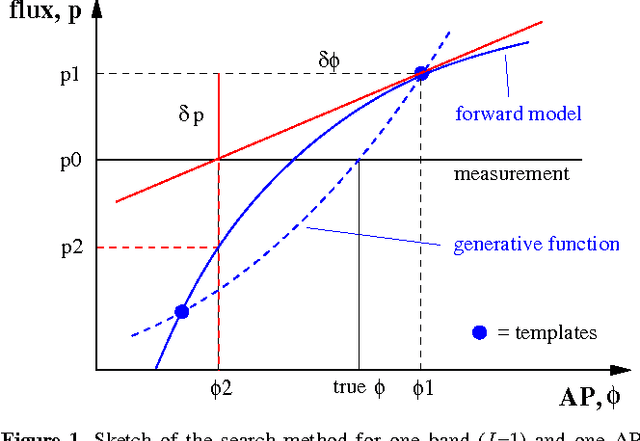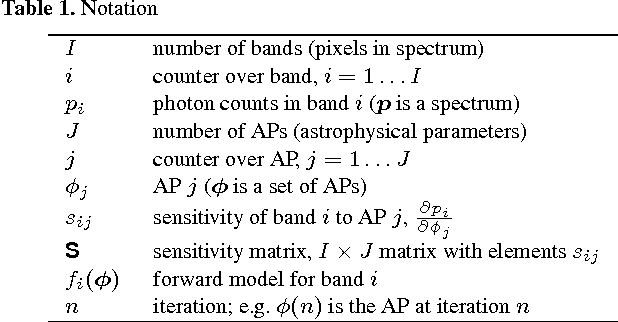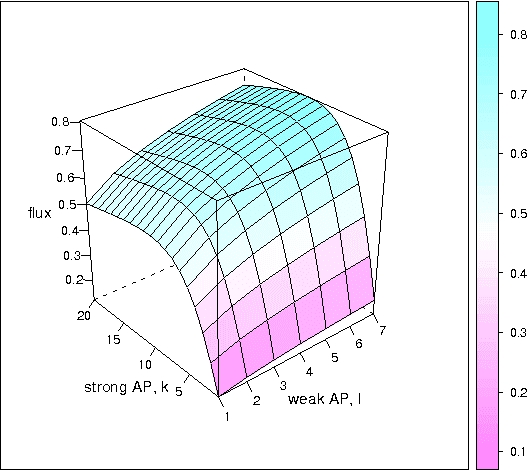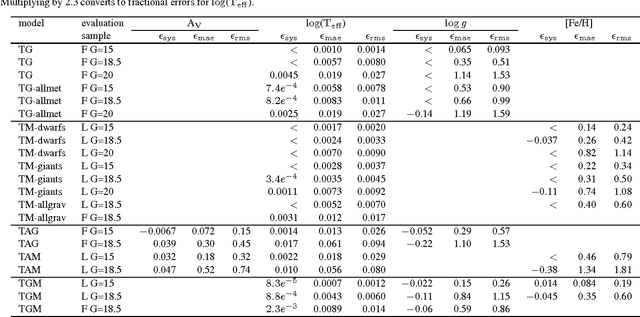The ILIUM forward modelling algorithm for multivariate parameter estimation and its application to derive stellar parameters from Gaia spectrophotometry
Paper and Code
Jan 04, 2010



I introduce an algorithm for estimating parameters from multidimensional data based on forward modelling. In contrast to many machine learning approaches it avoids fitting an inverse model and the problems associated with this. The algorithm makes explicit use of the sensitivities of the data to the parameters, with the goal of better treating parameters which only have a weak impact on the data. The forward modelling approach provides uncertainty (full covariance) estimates in the predicted parameters as well as a goodness-of-fit for observations. I demonstrate the algorithm, ILIUM, with the estimation of stellar astrophysical parameters (APs) from simulations of the low resolution spectrophotometry to be obtained by Gaia. The AP accuracy is competitive with that obtained by a support vector machine. For example, for zero extinction stars covering a wide range of metallicity, surface gravity and temperature, ILIUM can estimate Teff to an accuracy of 0.3% at G=15 and to 4% for (lower signal-to-noise ratio) spectra at G=20. [Fe/H] and logg can be estimated to accuracies of 0.1-0.4dex for stars with G<=18.5. If extinction varies a priori over a wide range (Av=0-10mag), then Teff and Av can be estimated quite accurately (3-4% and 0.1-0.2mag respectively at G=15), but there is a strong and ubiquitous degeneracy in these parameters which limits our ability to estimate either accurately at faint magnitudes. Using the forward model we can map these degeneracies (in advance), and thus provide a complete probability distribution over solutions. (Abridged)
 Add to Chrome
Add to Chrome Add to Firefox
Add to Firefox Add to Edge
Add to Edge